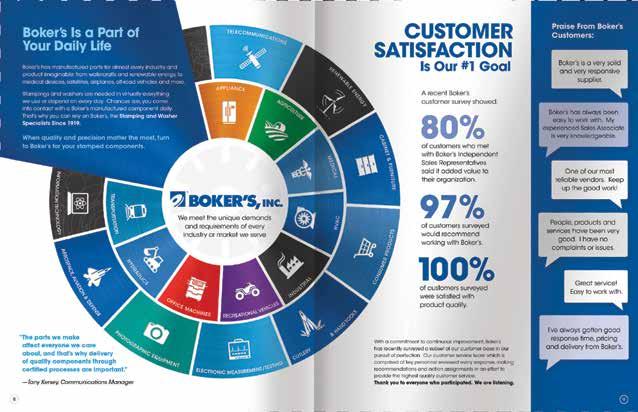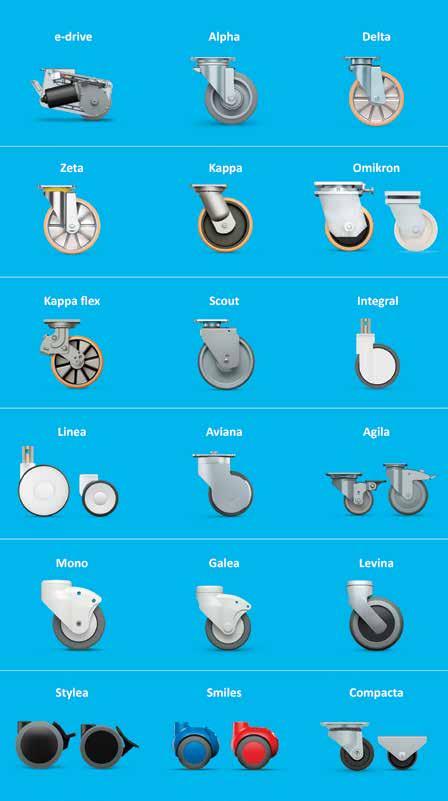
7 minute read
FROM THE PUBLISHER
PUBLISHER SCOTT FILBY
INDIA A GROWING MARKET THAT CANNOT BE IGNORED
Advertisement
The rapid growth of India provides opportunity for Australian businesses and manufacturers at a time when it is most needed.
The India Economic Strategy endorsed by the federal government indicates that the nation will rise to Australia’s eighth-biggest trading partner to one of our top three export markets within 15 years.
The importance of the stronger economic relationship cannot be overstated, given India’s status in the region, defence ties, a diaspora in Australia of more than 700,000 and the aggressive nature of China’s policy in the region.
China, our major trading partner in two-way trade, has displayed a petulance bordering on disdain for western values and has imposed tariffs and trade restrictions on Australian exports and those of other western countries.
China wants to dominate the region. Its encroachments through the militarisation of atolls in the South China Sea poses a threat to freedom of navigation and is an affront to international law, its intimidation of Taiwan a risk to regional peace, while its restrictions on the freedoms of Hong Kong citizens are in breach of the handover agreement with Britain.
Its Belt and Road Initiative is nothing more than a transparent attempt to gain dominance over the west in the region through creating economic dependence. In doing so, it overlooks the fact that it was the support of the west and favourable trade terms that help transform the country into a global powerhouse.
For Australia to seek to lessen its reliance on China for trade is nothing more than sound economic sense – and India is growing faster than any other country.
As former Department of Foreign Affairs and Trade Peter Varghese said in his India Economic Strategy, the key question for Australian companies with a global focus is whether they can afford not to be in what is the fastest growing large economy in the world.
As we enter 2021 with government support for the sector through the $1.5 billion Modern Manufacturing Initiative, there is no better time to turn our eyes towards India and a burgeoning bilateral trade relationship.
That is a wrap for 2020 Merry Christmas & Happy New Year to all of our readers and advertisers. "Behold, a virgin shall be with child, and shall bring forth a son, and they shall call his name Emmanuel, which being interpreted is, God with us.” Matthew 23:1 ACTING EDITOR IAN MOORE
POWERS NEEDED TO PULL STATES INTO LINE
The federal government’s response to the COVID pandemic and the blatantly self-serving attitude of some states provides one of the most instructive lessons from the crisis: that our federation of close to 120-years is broken.
In March when lockdowns and restrictions were placed on the community and businesses, Prime Minister Scott Morrison formed a national cabinet which included the state and territory leaders. Instead of a being a vehicle for consensus, it displayed the inability of the federal government to counter state rights.
When in September – Victoria aside – there were negligible cases of new transmissions, Labor states defied calls by Mr Morrison to re-open state borders. As a result, businesses have gone to the wall, countless thousands of jobs have been lost and the federal government is left counting the cost.
According to an analysis by the Business Council of Australia, the border closures cost more than $2 billion a week in business forgone and welfare received.
State rights need to be qualified to ensure emergency powers remain with the federal government and are not left to the whim of recalcitrant states.
There must be special mention here of Victoria – which decided to go it alone and defy the national cabinet recommendation to use defence personnel or police to supervise hotel quarantine of overseas travellers. Instead, for reasons as yet undisclosed, it decided to use ineffective, ill-trained security guards, which triggered a deadly second wave through the state.
As a consequence, the effective unemployment rate in Victoria in September was 14 per cent, up from 10.5 per cent in July. In the rest of Australia, the figure was 7.8 per cent in September. The extraordinary difference lifted the amount that the federal government has contributed to Victoria through JobKeeper and JobSeeker alone to more than $35 billion.
A recommendation by the Royal Commission into National Natural Disaster Arr¬angements at the end of October could show the way to restore proper powers to the federal government. The commission noted that the Commonwealth needed new powers to intervene in natural disasters, which would enable it to deploy the ADF more swiftly and override the states in “exceptional” circumstances.
It is a recommendation that should be heeded and extended to other areas of state responsibilities.
Phone 02 9971 7577 Fax 02 9971 2892 Email sales@serpent-dove.com
2/6 Taronga Place, Mona Vale, NSW 2103 www.serpent-dove.com.au
INCREASE IN CYBER THREATS AS REMOTE WORK CONTINUES
Cyber criminals are coming up with new and more dangerous tactics to target organisations amid the COVID-19 pandemic.
Data on the state of industrial cybersecurity worldwide by security group Claroty found that a majority of IT professionals experienced an increase in threats since March.
Some 1,100 security professionals within large enterprises across Europe, North America and Asia Pacific were surveyed, examining how their concerns, attitudes, and experiences have changed.
In Australia and New Zealand, almost 65 per cent said their networks were “completely connected” yet only 8 per cent are prioritising operational technology security.
This is despite 81 per cent saying IT and OT have become more connected as a result of the pandemic.
Additionally, 70 per cent have seen cyber criminals using new tactics to target their organisations in this timeframe.
The report also detailed the top five industries that hackers are targeting. Globally, the respondents ranked pharmaceutical, oil and gas, electric utilities, manufacturing and building management systems as the most vulnerable to attack.




Contact Tente Castors & Wheels To Find Your Product Solution

COURT OVERTURNS DECISION ON SECURITY FOR FAIR WORK CLASS ACTION COSTS

The Australian Industry Group has expressed its disappointment at the Federal Court overturning the decision that compelled litigation firms to provide security for costs in Fair Work class actions.
Justice Michael Lee had ordered Augusta Ventures – a UK-based litigation funder – to provide security up front for the costs likely to be expended by the relevant employers in defending a class action.
The decision in the Turner v Tesa Mining case was regarded as a landmark ruling because it could deter some of the growing number of class actions being launched under the Fair Work Act.
In this case, the applicant brought representative proceedings in the Federal Court on behalf of employees, who had worked at the Mount Arthur Coal Mine through two labour-hire firms from 2012 to 2018.
The proceedings alleged that a number of employees were wrongly being treated as casual employees by the labourhire firms and sought compensation for unpaid entitlements as well as orders for pecuniary penalties.
The labour-hire firms sought security for costs directly against the funder of about $1 million each, which Justice Lee granted. However, Federal Court Chief Justice James Allsop ruled that an order could not condition, or threaten to condition, the rights of the applicant and the group members’ rights because of a prospective liability of AVL for cost
Ai Group chief executive Innes Willox said the decision by the full bench was disappointing, but the court did not rule out Augusta Ventures being required to pay the employers’ costs at the conclusion of the litigation, if the claims were rejected.
Mr Willox said Justice Allsop highlighted the absence of regulation that required foreign litigation funders to have proper capitalisation or sufficient funds in Australia.
“This could impact upon employers being able to recover their costs in class action litigation and this regulatory gap needs to be addressed without delay,” Mr Willox said.
He said comprehensive litigation funding legislation needed to be implemented requiring licence holders to:
• Have sufficient capital in Australia;
• Act in the best interest of plaintiffs at all times;
• Fully disclose funding arrangements to plaintiffs and the court;
• Ensure that any returns are reasonable, having regard to Returns on Invested
Capital (ROIC) being earned at the relevant time for other classes of investments with similar risks; and
• Pass, on an ongoing basis, a “fit and proper person” test.
“A parliamentary inquiry is currently looking at the need for reforms to class action and litigation funding laws and Ai Group has put forward a comprehensive reform plan,” Mr Willox said.
“An Australian Law Reform Commission report last year on Class Actions Proceedings and Third-Party Litigation Funders reported that, in cases involving litigation funders, the median return to plaintiffs is only 51 per cent of the amount awarded. In cases not involving litigation funders the median return to plaintiffs is 85 per cent. This highlights that the current arrangements are not benefiting plaintiffs and that reforms are urgently needed.”






